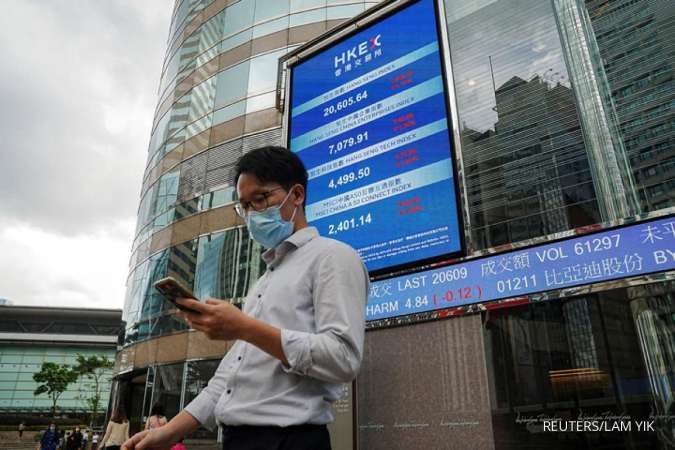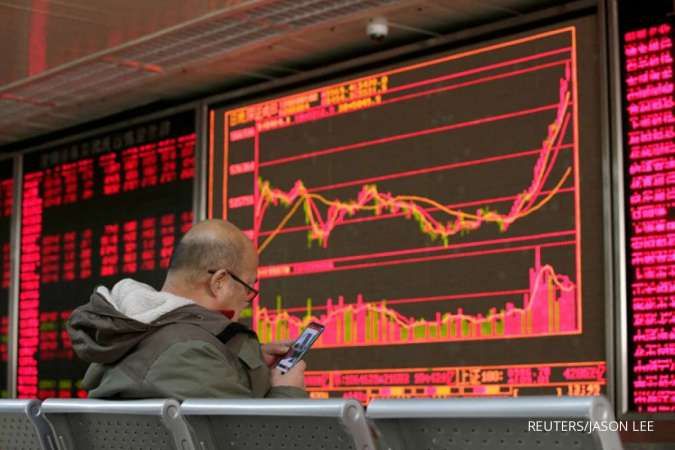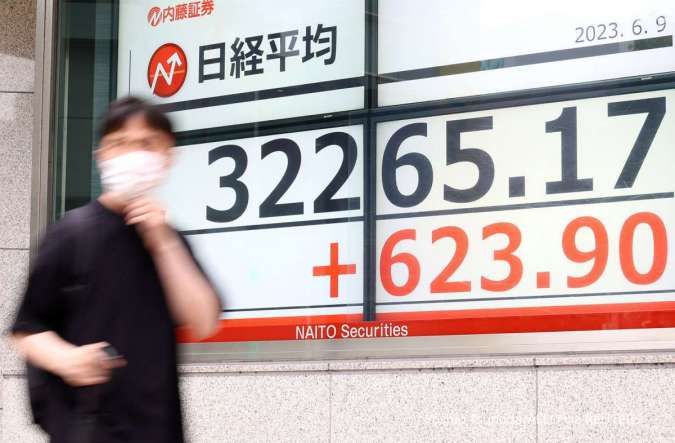STOCK - SINGAPORE. Asian stock markets snapped an eight-day losing streak on Tuesday, helped by a rebound in beaten-down Chinese shares, while benchmark Treasury yields scaled 16-year highs on concerns that interest rates will stay high for quite a while.
MSCI's broadest index of Asia-Pacific shares outside Japan jumped 0.9% in mid-afternoon trade, with the Hang Seng surging 1.3%. Japan's Nikkei rose 0.9%, helped by a positive lead from Wall Street on Monday.
Benchmark 10-year yields climbed 2.5 basis points (bps) in early Tokyo trade to touch 4.366%, their highest level since 2007 and are up almost 40 bps for the month so far.
Yields go up when bond prices go down, and the rout comes in the wake of surprisingly upbeat U.S. economic news that has led investors to scale back expectations for policy easing next year.
Those higher-for-longer-interest rate fears as well as worries about China's faltering economy have recently sapped investor appetite hunger for stocks but Tuesday brought a bit of a rebound.
S&P 500 futures turned positive late in the Asia day to rise 0.1%. European futures were last up 0.6% and FTSE futures rose 0.3%.
Treasury futures now imply 98 basis points of rate cuts in 2024, compared to 130 basis points a couple of weeks ago.
Read Also: Slower Growth Ahead for Australia as Population Ages
At the same time, however, inflation expectations have hardly budged - meaning that "real" yields, which discount inflation expectations, have surged - a development likely to prompt investors to re-evaluate taking risks.
"That being the case, it is not outlandish to expect significant impact on credit and capital flows," said Vishnu Varathan, head of economics at Mizuho Bank in Singapore.
The near 300 bps added to 10-year U.S. real yields since September 2021 is the most acute tightening of real rates in 25 years, he said, adding that a speech on Friday by Federal Reserve Chair Jerome Powell could drive them higher still.
The 10-year real rate breached 2% on Monday.
Sovereign yields in Australia, Korea, New Zealand and Japan all rose on Tuesday, with 10-year Japanese yields hitting their highest since 2014 at 0.66%.
Read Also: Tsingshan Starts 50,000-Ton Nickel Plant in Indonesia
LOW-YIELDING CURRENCIES IN FOCUS
The Hang Seng was doing its best to snap a seven-day losing streak and was up 1.3% in the afternoon after a volatile session of swinging between gains and small losses.
Shares in giant Australian miner BHP Group fell 1.3% after it posted its weakest annual profit in three years - though it said it expected Chinese demand to stabilise and growth momentum to pick up again later in the year.
The moves in yields have shovelled pressure on currencies offering low returns.
The yuan stabilised around 7.2845 to the dollar after state banks had earlier used the offshore forwards market to defend it.
The yen was also on intervention watch and caught a small boost from a meeting between Bank of Japan chief Kazuo Ueda and the Prime Minister. It was last about 0.2% higher at 145.95 per dollar.
The euro, which rose slightly on Monday, was firm at $1.0912, while the Antipodean currencies came off nine-month lows as Hong Kong stocks gained. The New Zealand dollar was up 0.5% to $0.5957.
Oil has been stepping down from August peaks and Brent crude futures were last at $84.42.
European gas prices have been rising as strikes loom at Australian liquefied natural gas facilities. Benchmark Dutch gas is up nearly 50% for August.
China's benchmark Dalian iron ore price jumped 4.1% to a two-year high.
The data calendar is fairly bare on Tuesday, but investors are already positioning for good news when chip designer Nvidia reports on Wednesday, with the stock surging on Monday.
/2023/04/04/557253262.jpg)












